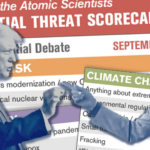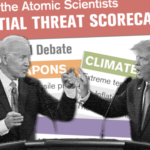(Automated) planning for tomorrow: Will artificial intelligence get smarter?
By Edward Moore Geist | March 4, 2017
Artificial-intelligence (AI) researchers have made very considerable advances in their theoretical knowledge of planning over the past few decades. But the impact of AI on society in the coming years will depend on how much these discoveries improve the real-world performance of automated planning, or AP, an AI subfield that seeks to create computer programs that can generate plans to achieve a particular goal. If practical applications of automated planning continue to stagnate, it could hold back all of AI, even as its other subfields continue to mature. Modest progress, meanwhile, would facilitate modest economic and military uses of artificial intelligence. And should AP experience the same kind of spectacular breakout as reinforcement learning, which is being used practically in a wide variety of fields, from robotics to finance, the peril and promise of artificial intelligence might be fully realized.
Together, we make the world safer.
The Bulletin elevates expert voices above the noise. But as an independent nonprofit organization, our operations depend on the support of readers like you. Help us continue to deliver quality journalism that holds leaders accountable. Your support of our work at any level is important. In return, we promise our coverage will be understandable, influential, vigilant, solution-oriented, and fair-minded. Together we can make a difference.















